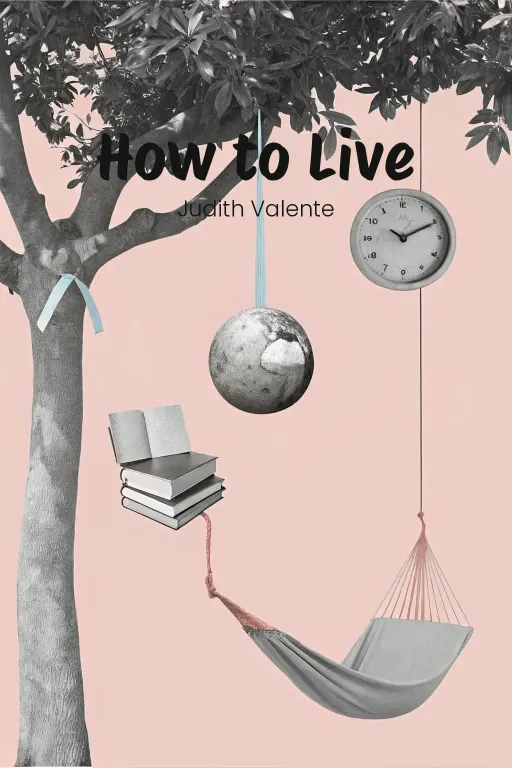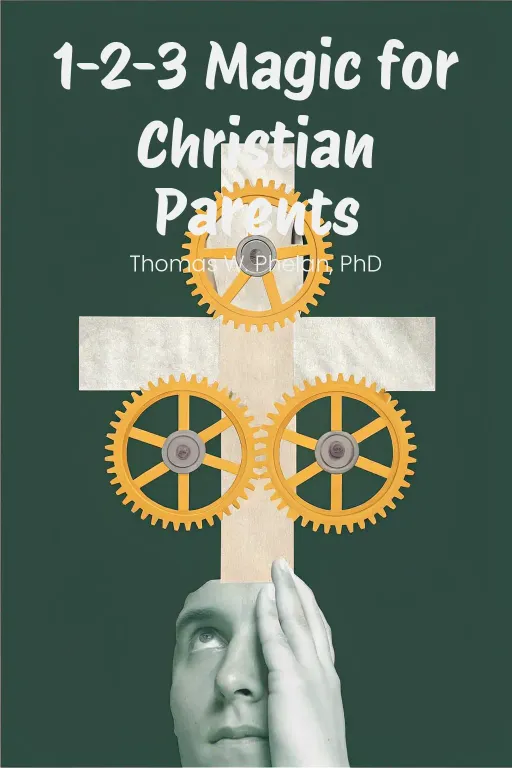
Fair Play: End the Home Chaos!
Podcast by The Mindful Minute with Autumn and Rachel
A Game-Changing Solution for When You Have Too Much to Do (and More Life to Live)
Fair Play: End the Home Chaos!
Part 1
Autumn: Hey everyone, and welcome back to the show! Rachel, you ever feel like you've got this secret, never-ending to-do list running in your head, but you can't quite put your finger on everything that's on it? Rachel: Autumn, if I even “thought” about having a secret to-do list, I'd be in the doghouse! But yeah, I think I get what you're driving at. We're talking about the mental load, aren't we? Autumn: Spot on! Today, we’re tackling something that impacts nearly every household: the uneven distribution of domestic labor, especially the often-invisible work that women tend to shoulder. And the book we're discussing today offers a system for solving it: Fair Play. It’s a framework designed to shine a light on that invisible labor and give couples a way to divide things more fairly. Rachel: Invisible labor...you mean like the dishes that wash themselves, or the kids’ school projects that magically appear finished? Autumn: Exactly! Except, there's no magic involved. It’s usually one person – and let's be honest, often it's the woman – who's constantly managing everything. Now,the book isn't just complaining. It's digging into the 'why' behind this imbalance, which often boils down to deeply rooted social norms. And importantly, it offers concrete solutions: better communication, true ownership of tasks, and making time for individual passions which author calls "Unicorn Space." Rachel: "Unicorn Space"? That sounds...intriguing, to say the least. I need to know more. Autumn: You will! In today’s episode, we’ll break this down into five parts. First, we’ll uncover the origins of this problem—why it exists and why we rarely talk about it. Then, we’ll explore the Fair Play solution and how it teaches couples to share the load without resentment. We’ll move into practical steps for making these changes stick, discuss the transformative benefits when families adopt this system, and finally, we’ll rally around why this shift matters for everyone. Rachel: So, from a hidden source of stress to teamwork and maybe even…gasp…happiness? Are we staging a domestic revolution here, Autumn? Autumn: Absolutely! Let's dive in and see how Fair Play can redefine partnerships for the better.
The Problem of Gendered Division of Labor
Part 2
Autumn: Okay, so let's dive right into the main issue: Why is the gendered division of labor still so obvious? Despite all our progress in other areas, it's still here. Historically, women were often expected to be the caretakers. Now, even though they make up almost half of the workforce, those old assumptions haven't “really” changed all that much. It's like we've got super-fast computers, but we're still running outdated software. Rachel: Yeah, exactly! Like having the latest smartphone, but with dial-up internet. And it's not just about who does the cooking or cleaning, it's also about the mental load, right? That stuff we're always planning and organizing—it's work, but no one “really” sees it. Autumn: Exactly! Invisible labor is all that planning, remembering, and organizing that keeps everything running smoothly. Like making grocery lists, scheduling appointments, or even just keeping track of what each kid needs for school. The tricky part is that it's constant, but nobody values it. Rachel: Let me guess—this invisible labor mostly falls on women? Autumn: You got it! Women are so often seen as the "default parent." There's actually a name for it: the "she-fault" parent. It's this idea that women are automatically responsible for most of the household tasks and parenting, even if they work just as many hours as their partners. Rachel: Wow, that’s mind-blowing. So, if something goes wrong, like, say, we run out of coffee, is it automatically her fault? Is that where "she-fault" comes from? Autumn: Exactly. And it's not just a theory. Author Eve Rodsky noticed it herself. She talks about how she felt overwhelmed by all these unseen responsibilities after she had a baby. Not that her partner didn't want to help, but he wasn't used to doing those things because society never taught him to. As all these tasks piled up, she got more and more exhausted and resentful. Rachel: That “really” hits home. You know, it sounds like a game you can't win. Like running a race where someone keeps moving the finish line. Autumn: That's a great way to put it. And it's not just tiring, it's harmful. The UN says that women worldwide do almost three times as much unpaid labor as men. And in one Today survey, mothers rated their stress at 8.5 out of 10. That's seriously high stress, which can definitely affect your mental health. Rachel: I want to jump in here about the "stress gap". What does that “really” mean, and why isn't it getting smaller, even though we talk about equality all the time? Autumn: Well, the "stress gap" is basically that women are dealing with a double mental load more than men. They're trying to balance work with being almost entirely responsible for the household. Darby Saxbe, a psychology professor, says that instead of fixing the actual problem, the system blames women. How? By telling them to buy wellness products to fix their stress, like eye creams for dark circles, meditation apps, things like that. Basically, society's giving us beauty products when it should be giving us “real” change. Rachel: Oof, that's too true. Like, "your burnout is your problem." It's like putting a band-aid on a big wound. But, Autumn, isn't that also why women are more likely to step back from their careers? That number about 43% of qualified women taking career detours—can we dig into that a little bit? Autumn: Definitely. There’s this example in the book from a woman called Elaine. She walked away from her high-powered career, because she was doing almost all of the housework. It wasn't even about being a mom, but about the fact that her partner didn't share the load at home. She was “literally” banging a spoon on her head to make her baby laugh, while her career goals were just slipping away. Rachel: I can totally see how frustrating that would be. But this isn't just bad for the individual, right? I mean, when talented women step back, organizations and society lose out too, don't they? Autumn: Absolutely. It's systemic. When women are pushed into these career detours, there are fewer women in leadership positions, workplace diversity suffers, and industries miss out on innovative ideas. And it snowballs—it's not just what’s happening now. There's a long-term effect called the "motherhood penalty," where women find it much harder to get back into the workforce after raising kids. Rachel: And I bet this doesn't start when we're adults, huh? Like, we don’t just suddenly get into this dynamic when we grow up—it’s ingrained way earlier than that? Autumn: You got it. These patterns are rooted in how we raise kids. Girls grow up reading stories where the female characters are assigned caretaker jobs—they’re nurturers, helpers, problem-solvers at home. Boys, on the other hand, are framed as leaders, explorers, or doers. Sara Petersen says that this early conditioning creates invisible scripts that we carry into adulthood. So, it's no surprise that invisible labor becomes “women’s work” almost automatically. Rachel: It's crazy how common this is. So, even though we're handing out "Girl Boss" mugs, these old-fashioned ideas are still running the show behind the scenes. Autumn: Exactly! And that lack of visibility devalues the work women do at home. When you turn looking after the family and the house into a paid job, suddenly it’s valued. Suddenly, when men do enter those spaces—like chefs or CEOs—society sees that work differently. So, changing these unseen dynamics is “really” important. It's about reframing what we value and making it equal. Rachel: “Restructure”—that’s the key. It feels like we have layers of societal expectations, early childhood conditioning, and just plain invisibility to unpack. So, where do we even begin to untangle all this?
The Fair Play System as a Solution
Part 3
Autumn: That's where the “Fair Play” system comes in, right? It gives you a real, structured way to deal with this imbalance by, like, making the invisible stuff visible. It starts with task cards—literally a deck of cards that turns all those household and caregiving jobs into clear, defined roles. So everyone knows what needs doing and who's got it covered. Rachel: Task cards? Seriously? Are we turning chores into a game now? Autumn: Well, in a way, yes! But it’s way more than just splitting up chores. The really smart thing about these cards is that they cover the whole task cycle. That’s where the CPE model—Conception, Planning, Execution—becomes super important. With Fair Play, when you take a card, you're saying you're responsible for everything. So, it’s not just "taking out the trash" because someone told you to. You're also remembering when trash day is, lining the bins, and making sure it gets done without a reminder. Rachel: So, no more of that, "I'll help if you tell me exactly what to do" nonsense. Picking up only one little piece just doesn't cut it anymore. Autumn: Precisely. There's an example in the book that really hit home with me—packing for a day out with the kids. On the surface, it seems simple, right? But whoever's on packing duty isn't just tossing stuff in a bag; they’re thinking ahead, planning for anything that might happen. Diapers, snacks, spare clothes, sunscreen, you name it. And here’s the kicker: if they don't restock after the trip, the whole thing falls apart next time. Rachel: It's kind of like forgetting to save your work, you know, on your computer. The next thing that you know, you’re scrambling the morning of and your stress levels shoot through the roof. Autumn: Exactly! That’s why completely owning the task—really understanding all the bits of Conception, Planning, and Execution—stops the whole "I thought you were doing it" disaster. And it actually builds trust, too, because whoever’s holding the card handles the job from start to finish. Rachel: Okay, sounds fair enough in theory. But what happens when someone’s, let's say, "bare minimum" standard for a task is…lower than their partner’s? Like, what if I think folding laundry means, you know, just rolling it all into a vague, abstract bundle, but my partner expects every shirt ironed and color-coded? Autumn: That’s such a good point. The book really emphasizes the importance of communication here. Couples need to sit down and really talk over their "Minimum Standard of Care" for each task. It's not about demanding perfection; it's about agreeing. Like, maybe one partner's standard for laundry is "no creases," while the other's is just "clean and accessible." Whoever's holding the task card makes sure that agreed standard is met, so no one feels resentful, or gets mixed signals. Rachel: Got it, so it's really about finding something you both agree on, instead of just judging how someone does something. Makes sense. But Autumn, what about Doug from the book? The guy who thought he was doing his part by cooking dinner every night, but it turns out his wife did all the thinking—choosing the recipes, shopping for ingredients, even planning meals around their schedules. Autumn: Oh yes, Doug’s a classic example of the "almost-there" problem. He’s doing the execution part, but completely absent from the planning and conception stages. That's where Fair Play is brilliant: Doug learned to fully own the "Cooking" card, meaning he decides what they're eating, makes the grocery list, buys the ingredients, and handles the meal prep. His wife doesn’t have to think about any of it for that task. Rachel: And I’m guessing the impact went way beyond just fewer arguments about groceries. Autumn: Oh, it was transformative. Not only did his wife feel seen and appreciated, but she also got back so much mental energy that Doug’s partial effort had been taking up. They reshaped their partnership into something more equal and trusting. That's the real beauty of this system—it’s not just about splitting up chores, but about changing the whole dynamic of the relationship itself. Rachel: Okay, I see now how this system clears up mental load. But you mentioned this "Unicorn Space" thing earlier. Where exactly does that fit into all this? Autumn: Unicorn Space is probably my favorite part. It's about making time for yourself—your passions, your creative outlets, your identity beyond just being a parent or partner. Because once the tasks are shared fairly, both of you get enough free time to start doing the things that excite you again. Rachel: Wait a minute, you’re saying this could actually make time for…hobbies? That's impossible! Autumn: Yes, Rachel, hobbies are back!. And it's more than that—I mean, let's say you love to write, or learn more about photography. Having dedicated time for Unicorn Space is proven to improve your mental and even physical health. Rachel: So, it's more than just a chore management system—it's almost like hitting the refresh button on your relationship and your sense of self. And, as an added bonus, fewer arguments about who used up all the toothpaste. Autumn: Exactly. Fair Play isn’t telling you that everything has to be split perfectly 50-50. It’s about creating a situation where both partners feel valued and have the space to do more than just survive. Rachel: Alright, Autumn, you’ve convinced me. Deal me in on this. Although knowing my luck, I'll probably draw the Trash Day card first.
Implementation and Avoiding Pitfalls
Part 4
Autumn: So, with the Fair Play system outlined, the next big step is actually implementing it in real life. This is where it goes from being just a nice idea to something that can “really” change things. And believe me, Rachel, how you put it into practice is everything. It's the difference between just dreaming about a better partnership and actually having one. Rachel: So, what you're saying is, we've got the instructions, but if we mess up the execution, we're back to square one, and maybe I'm sleeping on the couch, is that about right? Autumn: Exactly! Getting the implementation right and avoiding common mistakes is so important. It's about making this system work for your unique relationship dynamic. We’re looking at two parts here: first, how to actually bring Fair Play into your home, and second, how to make sure it doesn't fall apart because of misunderstandings or old habits. Rachel: Okay, so let's tackle the first part, this "application" aspect. The book starts with "outlining the deck," right? Shining a light on all those often-unseen household tasks. What does that really mean for couples? Autumn: That's a great question. Outlining the deck is “really” about opening your eyes to everything that needs doing. It means identifying every single household responsibility – the obvious ones, like paying bills, but also those invisible ones, like remembering school permission slips or arranging playdates. It’s like taking inventory of everything it takes to keep a home running smoothly. Rachel: Sounds straightforward, but I bet it’s not as simple as just making a quick list over coffee. Autumn: Not really. Because a lot of us underestimate how many tasks there actually are. The author suggests using visual tools like sticky notes or a spreadsheet. The idea is to actually see what's been invisible for so long. The book mentioned the author painstakingly wrote down every single task she was juggling. And when her partner saw the huge list, it was a revelation—he finally understood the breadth of what she was carrying. Rachel: Wow, so it's like creating the… ultimate inventory of domestic labor. I'm curious, though, what's stopping someone from looking at this list and just saying, “Nope, I’ll stick to doing the dishes”? Autumn: And that's where the brilliance of the system “really” comes in. By visually mapping out every task, you take away the ability to ignore them. It starts a conversation about responsibility that's based on facts, not feelings. When the invisible becomes visible, it creates a level playing field for open discussion, and there’s no denying what needs to be done. Rachel: Okay, so cards on the table – literally, I see. But that leads me to CPE… Conception, Planning, Execution. You mentioned it earlier. Why is this so important when it comes to sharing tasks effectively? Autumn: CPE is groundbreaking because it redefines what "responsibility" “really” means. It's not just about helping out. True ownership means managing a task from beginning to end. Take grocery shopping, for instance. Whoever holds that card has to handle everything – thinking about what's needed ("conception"), planning the list and schedule, and then actually going to the store. No compromises. Rachel: So, no more "Honey, what should I make tonight?" followed by "And do we even have the ingredients?" Got it. Autumn: Exactly! And this is where Doug's dinner dilemma comes in. He thought he was contributing so much by cooking every night, until his wife pointed out that she was still managing the mental load of figuring out recipes, buying the ingredients, and fitting it all into their schedules. When Doug embraced the entire CPE cycle, it transformed how they shared responsibilities and calmed the storm of resentment his wife was carrying. Rachel: Right, so we've outlined the deck, embraced full accountability through CPE. But how do you actually get your partner to buy into all of this? I imagine a lot of people get defensive when faced with a chore balancing act that might reveal… you know… inequities. Autumn: That's a “really” important point, Rachel. Onboarding – getting your partner on board – is sensitive, and you have to approach it as a team, not as opponents. Instead of saying, "Here’s what you’re not doing," you frame it as, "Here's how we can better support each other and create the life we both want." The book suggests phrases like, "I think this system could help us both create more time for what matters." Rachel: So, you're selling harmony and free time instead of, "Let me tell you all the ways you've been slacking for years." Autumn: Exactly. Tone is everything. And tailoring the conversation to your partner’s values makes a big difference. If they're data-driven, you can highlight how the system reduces conflict and increases efficiency. If they're more focused on relationships, you can emphasize how it strengthens your bond and creates more quality time together. Rachel: Tailoring the pitch. Smart. But what happens when life throws you curveballs? Like, someone gets a promotion, or the kids suddenly have a million after-school activities. How do you keep this system from collapsing under pressure? Autumn: That's why regular check-ins are so important, Rachel. The book recommends setting up regular meetings to see who's doing what and how it's going. It's not just about redistributing when things get hectic; it's also a chance to talk about frustrations or adjust standards if needed. These check-ins reinforce the idea that partnerships are ever-changing, just like life is. Rachel: Check-ins sound good, but disagreements over standards seem inevitable. What if my tolerance for chaos – say, toy clutter – is way higher than my partner’s? I could live with a Lego minefield, but she might find it unbearable. Autumn: That’s where the concept of Minimum Standard of Care comes in. The Fair Play system encourages couples to define what “acceptable” looks like for each task. So, if cleaning means vacuuming once a week and wiping counters daily, both partners agree to that standard. It eliminates guesswork and micromanaging by turning mismatched expectations into shared priorities. Rachel: I love it – clear benchmarks, no more vague standards. But let's talk about potential pitfalls because you know they're out there, even when you have the best intentions. What's the biggest trap people need to avoid? Autumn: One huge issue is clinging to the "it's easier if I do it myself" mentality. It’s the toxic myth, you know, thinking your time isn't valuable or that teaching your partner takes too long. But the problem is, that shortcut keeps you stuck in the same patterns. You might save five minutes today, but you're giving up long-term equity. Rachel: So, it's a delayed gratification. Some short-term pain for long-term gain. Autumn: Exactly. And that applies to other pitfalls, too, like mismatched expectations or divided task ownership. If you hold onto old habits, even unintentionally, the system fails. That's why buy-in, transparency, and complete accountability are non-negotiable. Rachel: Alright, Autumn, so we've built the system, avoided the traps. What's the ultimate reward here? Autumn: Ultimately, Rachel, the reward is a transformed partnership. One where both people feel valued, supported, and seen. Fair Play is more than just dividing chores—it's about freeing up time for creativity, connection, and self-discovery. And when both partners are thriving, the whole family reaps the benefits.
Benefits of Equitable Partnerships
Part 5
Autumn: Implementing Fair Play successfully really does transform individuals and families. One of the most compelling things is how it redefines family dynamics, promotes personal growth, and opens doors to greater career fulfillment. These are the real benefits of partnerships built on equity. Rachel: Okay, so this is where it gets interesting. What are the “actual” results of putting in all this effort? Let's start with family dynamics. How does "Fair Play" actually bring a family closer? Autumn: It boils down to two things often missing at home: clarity and fairness. Fair Play gets rid of the ambiguity that causes resentment. When everyone knows their role, household stress just plummets really. Historically, women have carried most of the unpaid labor. This imbalance isn’t just about the tasks you see – it’s about the invisible mental load that wears you down and alienates you. Rachel: Right, that mental load—planning, remembering, worrying—it’s totally invisible but everywhere. I'm still floored that women rate their stress at 8.5 out of 10. Autumn: It's a shocking figure, but when you look at the data, it makes sense. And this is where Fair Play steps in: it lightens the load for the "she-fault" parent, improves communication between partners, and sets an example of equity for children. Research even suggests that children raised in households where tasks are shared equally internalize those values. They're less likely to fall into "women's work" stereotypes, you know? Rachel: Interesting. So, families who split tasks fairly aren’t just helping themselves, but they're also changing how future generations think about collaboration. But what about the emotional side? I get the stress relief part, but are there deeper changes in the relationships themselves? Autumn: Definitely! Look at Darby Saxbe’s work in psychology. She points out that fairness in domestic labor actually strengthens emotional bonds within families. Think about it—when one parent isn’t constantly stressed from carrying everything, they have more energy to actually enjoy their relationships. Families start focusing on quality time together, instead of just surviving the day-to-day. Rachel: So, balancing chores is romantic? That seems a bit counterintuitive, but okay, I'm listening. Autumn: It’s really more about mutual respect, I think. When you acknowledge the work everyone contributes and share responsibilities, it shifts the power balance in a positive way. The book tells stories of women being pushed towards superficial solutions, like skincare products, to deal with stress. Fair Play flips that around and says, “No, the real solution is systemic fairness.” Rachel: That makes a lot of sense. You can buy all the fancy serums you want, but they're not going to fix stress that's caused by inequity. Okay, family dynamics—check. What about this Unicorn Space idea? I think I understand the concept, but how does carving out time for personal passions really make a difference? Autumn: Unicorn Space is about more than just hobbies—it’s about reclaiming your identity. Take Carrie, the former Broadway performer in the book as an example. She gave up her career to focus on her kids, but years later, when an opportunity came up, she hesitated. She’d lost touch with that part of herself. But with her partner stepping up at home, Carrie made a triumphant return to the stage. That moment wasn't just huge for her—it inspired her whole family. Rachel: Okay, but what's the ripple effect of that? Yes, Carrie gets her creative spark back, but what does that do for the family? Autumn: It's transformative! When Carrie came home energized and fulfilled, her family saw a happier, more vibrant version of her. And the research backs this up. People who dedicate time to meaningful activities—Unicorn Space—report better mental health, better sleep, even a lower risk of cognitive decline later in life. Rachel: So, you're not just happier, you might actually live longer? This Unicorn Space thing might actually be magic! Autumn: It really can be magic. What’s more, it sets a great example for children. When kids see their parents making time for their own interests alongside family responsibilities, it shows them that you don’t have to lose yourself to be a parent. That’s especially important for daughters, who often internalize societal expectations about self sacrifice, right? Rachel: That “really” hits home. Growing up watching your mom prioritize herself, instead of disappearing completely into the role of caregiver, would definitely paint a whole different picture for girls. Autumn: Exactly! And it’s not just about moms, really. Everyone benefits when both partners have the freedom to explore their interests. Which leads us to career fulfillment. Rachel: Here we go. I feel like this is the elephant in the room. Motherhood often gets blamed for stalling women’s careers, but is that “really” the whole story? Autumn: Not at all, it’s a convenient excuse. Amy Westervelt put it perfectly: "It’s not motherhood or kids that derail careers—it’s men who refuse to do their fair share." The “real” problem isn’t parenthood—it’s the unpaid labor that comes with running a house. Take Elaine from the book, a talented professional who had to put her career aspirations on hold because the mental and physical load of running the household fell squarely on her shoulders. She wasn’t derailed by her child; she was derailed by the system. Rachel: That's truly heartbreaking. What happens when these women pass up promotions or leave the workforce entirely because the burden becomes too much? Autumn: The consequences are huge. Women miss out on leadership positions, their earning potential shrinks, and industries lose out on valuable talent. Plus, the "motherhood penalty" means even a short break from a career can have long-term effects—lower wages, fewer opportunities, less representation in decision-making roles. Rachel: Let me guess—Fair Play addresses this by balancing the load so both partners can focus equally on their careers, right? Autumn: Precisely! When tasks are divided fairly, women have the mental space to pursue their professional goals without feeling overwhelmed by domestic work. And here’s a bonus: men benefit too. Studies show that men who take on more caregiving roles often develop stronger emotional intelligence, which can actually help their own careers. Rachel: Fascinating! So, when men embrace equity at home, they’re not just helping their partner; they’re also leveling up their own skills at work. Autumn: Absolutely! That’s the overarching message here: partnerships built on equity don't just change lives—they unlock potential for everyone involved. Families become more emotionally connected, individuals grow, and careers take off. Rachel: Alright, Autumn, I have to admit—I might need to reshuffle my own deck after this. Fair Play sounds like a system that’s not just revolutionary, but actually achievable.
A Call to Redefine Family Roles
Part 6
Autumn: Ultimately, all these benefits lead us to rethink family roles, for a more harmonious long term. And that’s “really” the core message of the Fair Play system. It’s not just about ticking off chores, it's totally reimagining what partnership at home should look like. Redefining roles isn’t about nitpicking, it’s about improving the overall dynamic. Rachel: Okay, so this is the system's big “call to action.” But what does “redefining family roles” actually mean in practice? I mean, won't most families run into issues when, say, old traditions or routines clash with these new ideas? Autumn: Absolutely, which is precisely why this process needs open and honest talks. The Fair Play system sees this as an ongoing thing—a practice of reflecting and staying flexible. Think of it as a framework that evolves with life. For instance, a couple might agree that one partner handles more during busy periods, but only temporarily, with set review points. It's about finding what works now while being ready to shift as needed. Rachel: This reflection part—it’s not a one-time thing, is it? I bet the whole system collapses if you don't check in regularly. Autumn: Exactly. Fair Play “really” stresses these regular check-ins. Maybe monthly, where you sit down to review tasks, share feedback, or even re-deal the cards to fit new situations. Like, during tax season, one partner might need to step back from home duties to focus on work. When gears shift like that, and the other partner steps up, that shows “real” teamwork and keeps things smooth. Rachel: So, it’s like tuning a machine, keeping it running well when life throws a wrench in the works, huh? But what if someone just can’t let go of control? You know, the “micromanaging spouse” situation? Autumn: Oh, that's a tough one! The Fair Play system actually addresses this with something called the “Minimum Standard of Care.” It’s about setting shared expectations for what’s “good enough” for each job. Without that agreement, it's easy to micromanage or feel like things aren’t done “right.” If the standard for grocery shopping is keeping the fridge stocked with, say, ten essentials, then that’s the benchmark. Rachel: Okay, but what if the MSC itself becomes a battle? Like, one partner thinks a tidy living room means no clutter at all, but the other one is like, "As long as the couch isn't on fire, it's fine"? Autumn: That's where the dialogue comes back in. You have to work out these definitions together and maybe compromise. It’s not about winning; it’s about finding a standard you both can live with. The goal isn’t perfection, it’s clarity. These talks avoid headaches later. Rachel: Right, Autumn. So the MSC helps eliminate ambiguity, but how does redefining roles at home spread outward? What’s the bigger picture here? I mean, some folks might see this as “just personal stuff.” Autumn: That's the cool thing, Rachel, redefining family roles goes beyond our homes. It changes how society sees things. For starters, kids see both parents as equally capable and responsible around the house. It challenges those ingrained stereotypes we talked about. Rachel: And that sets a precedent, right? Kids learn from what they see and carry that into their relationships, workplaces, everything. Autumn: Absolutely. But it doesn't stop there. When men, for example, do more at home and embrace caregiving, it affects the workplace too. It makes it more normal for men to take paternity leave, adjust their schedules for family needs, or even participate in school events. It challenges the old idea that caregiving is less important than work. And, this can leads to bigger changes like flexible work policies, shared leave systems, and a more balanced society overall. Rachel: So, redefining roles at home doesn’t just make families happier, it pushes communities, workplaces, and the culture toward fairness. That's a pretty great return. Autumn: It “really” is. And back to the Fair Play system—it’s about living more intentionally. By valuing each partner’s time equally, supporting their dreams, and working together, families do more than just survive, they “really” thrive. Rachel: Alright, Autumn, I'm sold. This call to action isn’t just about organizing my home better—it’s about changing larger norms.
Conclusion
Part 7
Autumn: So, to wrap up, we've “really” dug into how this ingrained gendered division of labor has unfairly burdened women, right? It's created so much stress and inequality. But the Fair Play system offers a tangible way forward. It’s a real framework, with the task cards, the CPE model—all designed to redistribute responsibilities more equitably. It’s not just about chores, you know? It's about creating balance, strengthening your partnership, and freeing up time for both of you to pursue your passions. Rachel: Exactly. And it strikes me that this is bigger than just fixing things at home. It's got the potential for a serious ripple effect. We're talking about changing family dynamics, setting an example for our kids, and maybe even shifting how society views equity and caregiving. It's a pretty big deal. Autumn: Absolutely. So, here’s a challenge for our listeners: just take a moment to shine a light on the unseen labor in your household. Start by listing all the tasks, everything that needs doing, and then really talk about what fairness looks like to both of you. Remember, it's not about achieving perfection overnight. It's about gaining clarity, collaborating effectively, and making sure you both have room to thrive. Rachel: Right, because when we change the dynamic at home, we're not just making our families stronger. We're actually contributing to a more balanced and equitable society overall. So, it sounds like it’s time to deal those cards, right? Autumn: Definitely! And, as always, remember the secret to happiness, both at home and everywhere else, is to play fair. Thanks so much for tuning in, and we'll catch you next time!









